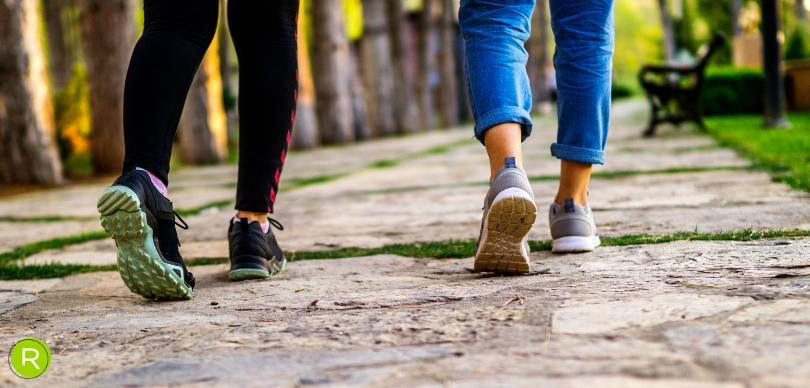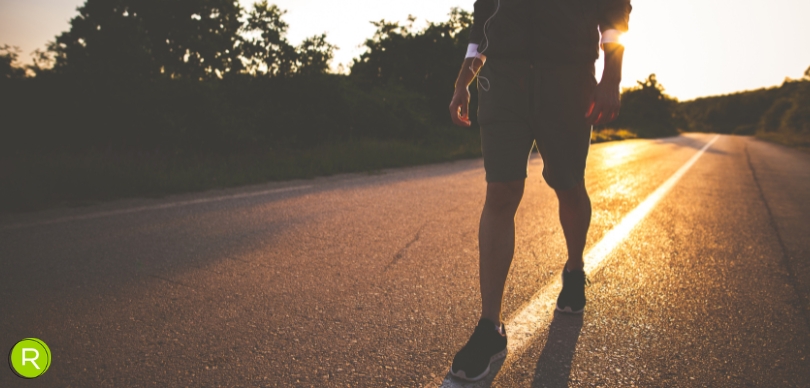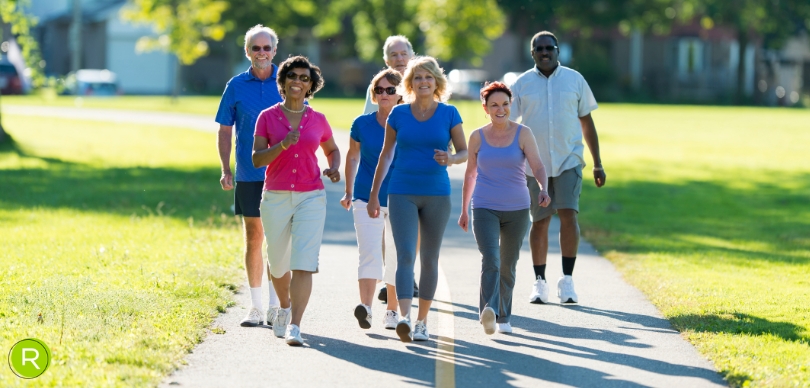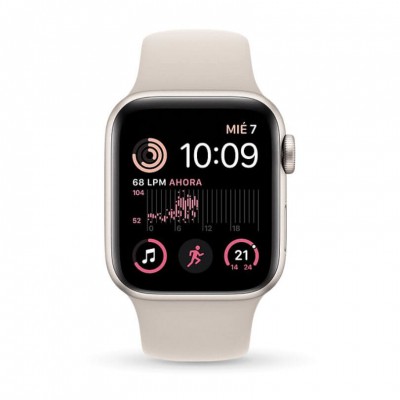At RUNNEA we are in love with running. Although some of us find it more difficult than others, but putting on our running shoes and going for a run is priceless. However, we are also aware that it is not always possible to run to improve your physical condition. Without a doubt, the best alternative is walking. So let's talk about all the benefits of walking 30 minutes a day.

We have the gift of putting one foot in front of the other, and moving forward, and that unique ability is what differentiates us as humans from the rest of the living beings that inhabit the planet. As such, this gift makes us special, and it is necessary to take advantage of it to maintain a balance between physical and psychological well-being. By this we mean that we are designed to walk and/or run, and this nuance has a lot to say in our quality of life.
In prehistoric times, it has been calculated that human beings were capable of walking an average of 10 kilometers a day. However, the nuance is that these walks were mandatory for reasons of survival. Fortunately, this is no longer the case today. But that does not mean that we are unaware of the importance of taking care of our physical well-being in our daily lives as a method of disease prevention. Especially coronary heart disease.
Walking 30 minutes a day, what science says about it
Of course, the option of walking is perfect to combat the important problem of sedentary lifestyles in our current society. Strolling, walking, or whatever you want to call it, is a simple action, accessible to everyone and 100% safe -as long as you wear the right walking shoes.
Recently, a recent Harvard Medical School study highlights that walking is the best method to lose weight in a healthy and safe way. The study shows that at different intensities, people of different weights will have a remarkable caloric expenditure, if they all walk 30 minutes a day.
- A person of 56 kilos, at moderate paces will lose 107 kcal; at intense paces, 135 kcal.
- A person weighing 70 kilos, at moderate paces will lose 133 kcal; at intense paces, 175 kcal.
- A person of 85 kilos, at moderate paces will lose 159 kcal; at intense paces, 189 kcal.
But there is even more scientific evidence in this regard, because a study by the University of Utah, in 2014, found that for every minute of brisk walking that women perform per day, they were able to decrease in a 5 of their risk of obesity.
On the other hand, there are other types of studies that have focused on determining how the action of walking can improve our mood and relieve day-to-day stress. Moreover, there are experts who point out that a daily walk, at a moderate pace, is more effective than any drug we can take to reduce states of depression.
There is no secret, and the "magic formula" responds to the increase in endorphin levels. What we runners call runner's euphoria. Still thinking of finding more excuses?

What are the health benefits of going for a walk every day?
In this regard, the daily recommendations for physical activity are clear. According to the U.S. Centers for Disease Control and Prevention (CDC), adults should get about 150 minutes of moderate-intensity physical activity per week, which equates to 30 minutes of walking five days a week. The challenge is ambitious, but not impossible. And it has no side effects.
Among the most important benefits of walking 30 minutes a day, we can list the following:
- It helps to lose weight in a more effective and healthy way.
- It decreases between 6% or 10% the appearance of coronary diseases, but also other pathologies such as colon and breast cancer, as well as diabetes.
- Reduces blood pressure and bad cholesterol.
- Maintains mental acuity.
- Increases and improves the possibilities of socialization.
Of course, this step into action will also contribute a small grain of sand to the general community, because we will also be helping to reduce health care costs.
Now, going back to Harvard University's Walking for Health, here are the basic recommendations to get the most out of those daily 30-minute walks.
- Use ankle weights or other variations to increase body weight by 15%, which will help burn 12% more calories.
- Climbing slopes is a great exercise that will make us lose 13% more calories.
- Walking at different paces, varying speeds, but without the need to run. In this way, we increase the effort. In fact, according to the British Journal of Sports Medicine, the ideal for adults is to maintain a pace between 8 and 12 minutes per kilometer.
- Perform a session of strength exercises, such as the typical squats, or even jumping rope. We increase strength, and therefore, caloric expenditure.


Don't make excuses and take action!
You may be interested in:
References
- Harvard Medical School.
- Harvard University's Walking for Health.
- British Journal of Sports Medicine.
Read more news about: Running Training





























